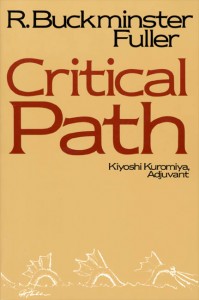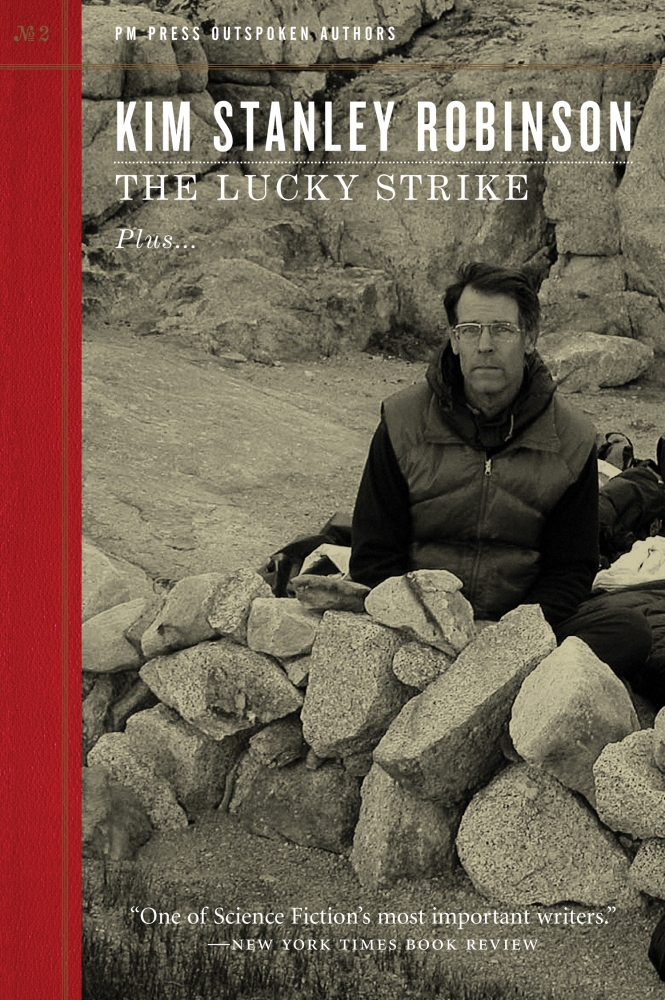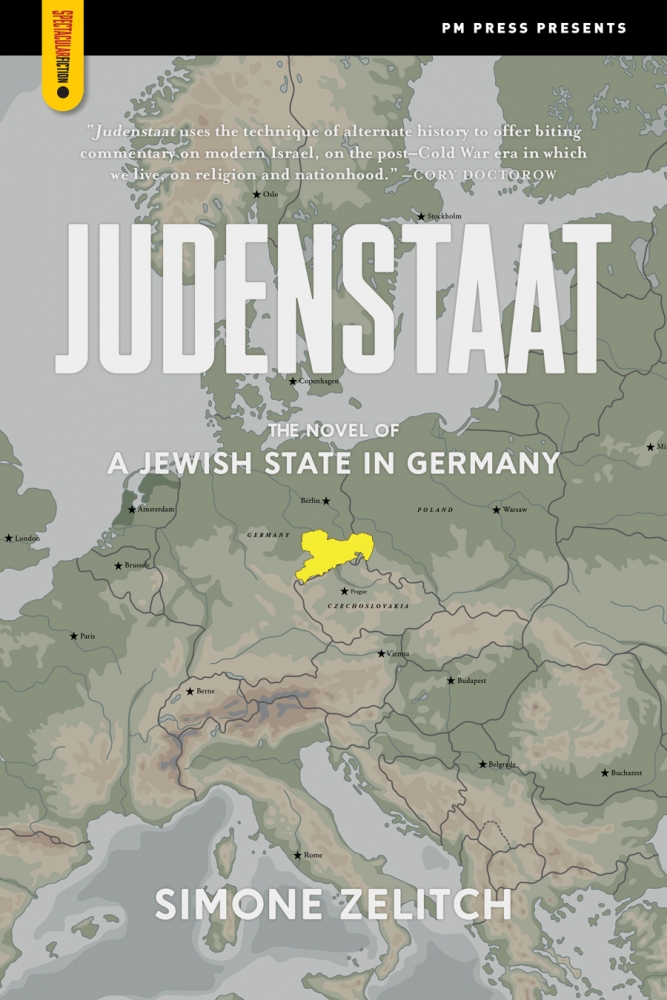
Review by Future Man
This is one of the critical tomes of 20th century utopianism, part eco-futurist manifesto and part autobiography. One of the final texts written before his death, Bucky Fuller's Critical Path covers an incredible scope in attempting to trace the development of human civilization up to 1980 and then make the case for a globalized and harmonious sustainable future for our species, and the path to get there.
Fuller has a creative way of navigating English and often invents words or establishes new linguistic standards to frame things within his worldview. The style is funky, charming, heady, and personal; a nice tone for a text dealing with the necessary reorganization of the global economy to allow the survival of our species on "spaceship Earth".

Review by Bill Svoboda
If you like "hard" sci-fi with an eco-leftist bent, and/ or smartly written alternate history then I strongly recommend Kim Stanly Robinson.
(Also recommended to fans of Ursula LeGuin and Gary Snyder!)
Because it's both short (107 pages) and varied (alternate history, essay, interview) this booklet is a good introduction to KSR's prolific writings- even though it's not his best work (that being said...it's still pretty good).

Review by Bill Svoboda
First published in 2001, this/indie/punk history stands the test of time. At over 500 pages, it's not a quick read, and the quality varies from one chapter to another. But the best parts more than make up for the not-so-best. Chapter 8 (The Butthole Surfers) had me choking with laughter ... repeatedly.
Someone wanting a weird but accurate portrait of the 1980s could read this book together with Susan Faludi's "BackLash".
Review by Bill Svoboda
If you are a Jungian New Ager you might actually like this. To me, it was run -of -the mill (the 1990 mill!) unconvincing and a little smug.

Review by Jessica Espy
Florence King is thought-provoking and controversial!

Review by Meg Duke
READ IT and learn so many real hard truths.
Review by Meg Duke
A prequal to the famous Ecotopia, this story goes into the specific actions taken by a variety of individuals that gradually lay the path toward Ecotopian independence. If Ecotopia's the finished product, this is the DIY step-by-step manual how to get there. (Go Ben!)

Review by Meg Duke
Very needed complete re-imagining of society's structure... down to economic and waste disposal systems! The writing itself? Eh. The concept and execution? Yes!

Review by Bill Svoboda
I would especially recommend this to anyone with questions and/or uncertainties regarding BLM. Written in a style that is emotion filled, highly readable, and (overall) Very Effective. An outstanding book.
Review by Bill Svoboda
A good-or at least potentially interesting- concept weakened by the choices of what was (and wasn't) included. I can imagine someone who is very much into "the romance of anarchism" giving this 4 stars but not 5.

Review by Bill Svoboda
Real life magical.
Review by Lilja Strang
This book is for those who have sat in their existential crisis long enough to realize that there is no point to life, no ultimate Truth, and no eternal transcendence. Without the promise of a greater purpose, a loving god, or a divine path, the existential philosopher is faced with a bleak and hopeless reality: existence is absurd and hope is only another illusion. It is only natural for one to then wonder why they should continue living at all.
I was in a similar (frankly depressing) place when I found this book. Although the discussions of suicide at the beginning will make it inappropriate for some readers, I found Camus's perspective strangely refreshing. Unlike most discussions on this topic which are often focused on finding reasons to live and to hope, Camus met me where I was at by assuming that ideas such as hope and a greater purpose do not truly exist. He postulates that "life has no meaning" is the beginning of philosophical questioning, not the end. By focusing on reality and avoiding mystical and manufactured solutions (i.e. deriving meaning from one's occupation and/or hope from a higher power) to the existential anxiety that underlies an awareness of absurd reality, he reaches the conclusion one's very existence constitutes a revolt. That is, choosing to remain alive when there is no reason to do so and sitting with the tension that is created through desiring meaning in a meaningless world is, in itself, an act of rebellion. Paradoxically, I found that is is through this acceptance which is, by necessity, devoid of hope, that living has purpose.
The book is beautifully written and Camus explores the Absurdist philosophy from many angles and cites a few examples of Absurd living. I struggled to understand a few of his points due to my ignorance of certain philosophers and stories that are referenced in this work; I suspect that someone more familiar with them would appreciate their inclusion. Overall, if you're struggling with the oppression of the daily grind and a meaningless existence, I highly recommend this book.
Review by Nick Janes
It is a story as a beginner's guide to food survival in the urban landscape.

Review by Meg Duke
As absurd as the Balkans are -- a blurry blend between brutal reality and realistic satire... Feels like you're drinking rakija or slivovica...

Review by Meg Duke
One of the best books in the AltLib. A collection of speeches, laments, and stories from indigenous folk of North America. Each excerpt lasts 1-2 pages and offers a wealth of knowledge, rooted in the interconnection among and respect for all life. A better world existed... can we learn from the wisdom of the past?

Review by Meg Duke
Groovy & soothing

Review by Meg Duke
A must-read for all folks engaging with abolition. Starting with a scathing situational and historical analysis of the US's racist and genocidal history, the book cites multiple autonomous movements as examples of equitable, self-organized communities and discusses the common threads that connect resistance and enable movements' longevity.

Review by Meg Duke
Sharp critical systemic analysis with some brief but practical inspiration for applying direct action into everyday life

Review by Bill Svoboda
I've found Simone Zelitch to be an easy author to get to know-and like. And her novel "The Confession Of Jack Straw" is a minor masterpiece-easily rating 5 stars. Unfortunately, rating "Judenstaat" even 4 stars feels a little like a stretch. There's plenty of good stuff going on- her basic style, lots of ideas, lots of good intentions and her love for/knowledge of history. That's the problem-it's too much for the basic structure/format-( a 301 page novel). A longer novel would have worked better (maybe even a trilogy?!?) -or best of all a series of inter-related short stories set in her alternate historical universe.
Review by Kyle Venooker
Paradise Rot is a strange, moving novel as amorphous and shifting as the foggy city of Aybourne in which it is set. Djaoanna (Jo for short) is a Norwegian student who finds herself in a city similar to the world we find ourselves in -- though with differences just slight enough to be thoroughly unsettling. A strange, handmade poster lands Jo in an abandoned brewery with Pym and Carral, and the ensuing relationship which burgeons between them explores just what happens when one partakes of the apple which has been expressly forbidden. Themes of Eden, the corruption of the flesh, and the sweet, stinky savor of rot pervades the senses as the walls between Jo and Carral, Jo and Pym, Pym and Carral, and the reader and all of them slowly, subtly lose definition amidst a veil of soft, downy fungus. Paradise Rot gets inside you, slowly, and eats its way to your very core.